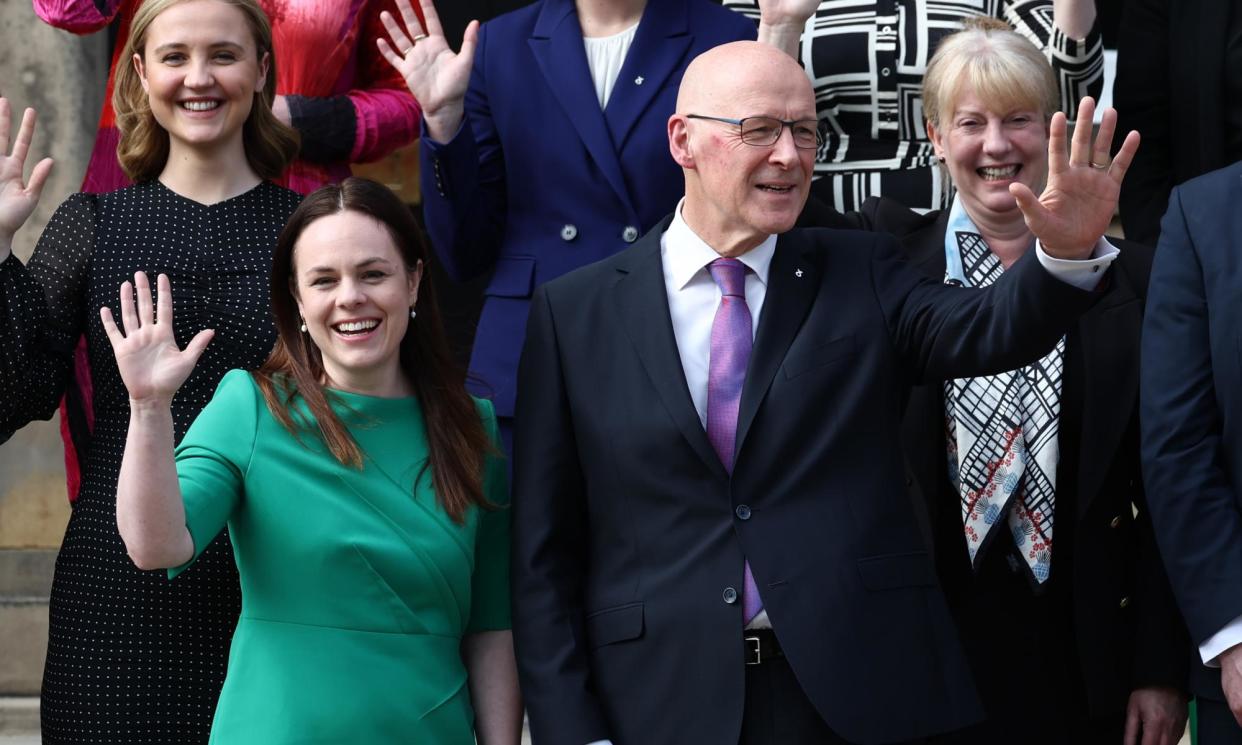Scottish first minister John Swinney appoints Kate Forbes as deputy

Kate Forbes, the former finance secretary who stepped aside last week allowing John Swinney to stand unopposed for the Scottish National party leadership, has been appointed deputy first minister.
The announcement came after Swinney was sworn in as Scotland’s seventh first minister at the court of session on Wednesday morning, after his nomination by MSPs at Holyrood, where he pledged to be the “first minister for everyone in Scotland”.
Swinney had promised a “significant” role to Forbes, who narrowly lost to Humza Yousaf in last year’s leadership contest to replace Nicola Sturgeon.
After informal talks between the pair last week, after Yousaf’s resignation nine days ago, Forbes said she had been persuaded by Swinney’s promise to “govern from the mainstream” to rule herself out of the contest and back his bid.
Forbes was the only appointment of significance in a reshuffle in which nine cabinet secretaries kept their existing portfolios, prompting derision from Scottish Labour, who dismissed Swinney’s “continuity cabinet”.
The economy portfolio will be split off from Màiri McAllan’s brief and given to Forbes, a Gaelic speaker who also takes responsibility for the Gaelic language. McAllan, another younger woman who is considered a potential future SNP leader, remains in cabinet with responsibility for net zero and energy.
Forbes, who served in Sturgeon’s government before returning to the backbenches after Yousaf offered her what she considered a demotion, said it was “a moment of extraordinary privilege” to rejoin the cabinet.
Swinney described her as “an immensely talented politician”, saying her new role would be critical “as we focus on our key commitments of eradicating child poverty, investing in public services and supporting economic growth”.
Her appointment to such a senior position is a clear signal to those within the SNP who had expressed reservations about the party’s governing partnership with the Scottish Greens and its influence on policy areas including rural affairs, just transition, economic growth and LGBTQ+ reforms.
Since her narrow defeat by Yousaf, Forbes has become a focus for those worried that divisive and distracting rows, such as those about gender recognition reform and the implementation of the hate crime act, were giving the impression to voters that the party did not prioritise their cost of living concerns.
Yousaf abruptly ended the partnership two weeks ago, but was forced to step down when the Greens backed a vote of no confidence against him, leaving him unable to marshal sufficient cross-party support.
The Scottish Greens co-leader, Patrick Harvie, was critical of the appointment, saying Forbes had expressed “quite startlingly social conservative views” during the leadership campaign last March.
But Shona Robison, who stepped down as the deputy first minister immediately before being replaced by Forbes but remains responsible for finance and local government, said Forbes’s appointment was the best way to unite the party and deliver a “progressive agenda”.
In a letter to Swinney, Robison revealed she had made the suggestion during a conversation that took place last week, for which Swinney thanked her in his letter of acknowledgment.
Swinney wrote: “I thought hard about your offer because I recognise it as an act of selfless generosity. I agree with you that it will help me create the inclusive and unified team that is needed to take Scotland forward.”

 Yahoo News
Yahoo News 
